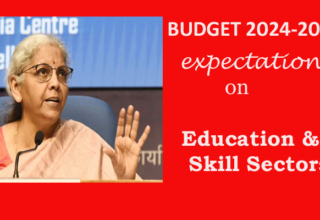
By Monika Kala , IBPYP- Coordinator at Genesis Global School
According to a study by Geneva-based ibo.org, “Between 2018 and 2022, the number of International Baccalaureate (IB) programmes offered worldwide has grown by 34.2%. As of January 2023, there were over 7,700 programmes being offered worldwide, across over 5,600 schools in 159 countries.” India has over 204 IB World Schools and 338 authorized programmes as per available data.
This clearly shows, IB board and programs are becoming popular globally including India. In the past, international IB schools were only seen accessible for children of expatriates or multinational professionals. But that is now a thing of the past. Today, such schools and programs are being sought after by parents across the spectrum and for clearer reasons. IB Board not only offers 360-degree learning but also provides an extra competitive edge to young learners who want to go overseas for higher education and eventually pursue a career there. IB Board is the doorway to some of the most reputed and top universities in the world.
Unlike the traditional education system which focuses on theoretical learning, IB curriculum aims to nurture students as future change-makers who are empathetic, intelligent, innovative, curious, and attuned to the world around them. The IB board caters to individual strengths, talents, and skills, and develops cultural awareness, inclusivity, flexibility, and learners’ responsiveness to situations with strong interpersonal skills.
Another chief reason International Baccalaureate (IB) is the right choice today is that the programmes of IB overlap with the objective of New Education Policy (NEP) 2020. In the face of the post-pandemic landscape, NEP 2020 has laid a strong foundation for the transformational changes required in a new world. It has stated that learning needs to be multi-disciplinary and multilingual, holistic, inclusive, inquiry-based, and futuristic with flexibility for choice and involving critical thinking skills. The IB Board framework too is trans disciplinary, emphasizing the overall development of the child. The IB board caters to individual strengths, talents, and skills, and develops cultural awareness, inclusivity, flexibility, and learners’ responsiveness to situations with strong interpersonal skills.
One other futuristic aspect of the IB board is that there are no prescribed textbooks. The curriculum is recognized all over the world with kids earning credits in the school itself. This helps them develop in college without having to study basic courses again. IB mission statement is “to develop inquiring, knowledgeable and caring young people who help to create a better and more peaceful world through intercultural understanding and respect.”
Types of IB Programmes:
Typically, the IB Board is classified into four branches: IB Primary Years Programme, IB Middle Years Programme, IB Diploma Years Programme, and IB Career-Related Programme. After building a strong foundation via a creative start in the IB Primary Years Programme, the next phase focuses on honing the student’s competencies and skills for the real world and preparing them to handle the challenges through curriculum that focuses on subjects related to arts, maths, language, literature, individuals & societies.
IB Primary Years Programme is focused on experiential learning and inquiry, basic reasoning abilities, and multilingualism. IB’s Middle Years Programme develops students’ Approaches to Learning (ATL) that encourage critical thinking skills just as NEP stresses. IB’s Diploma programme offers a variety of courses from six subject groups, giving them confidence across disciplines, which is the goal of NEP 2020 too.










